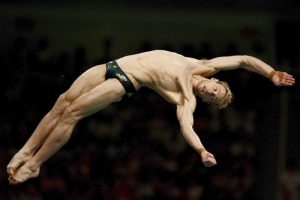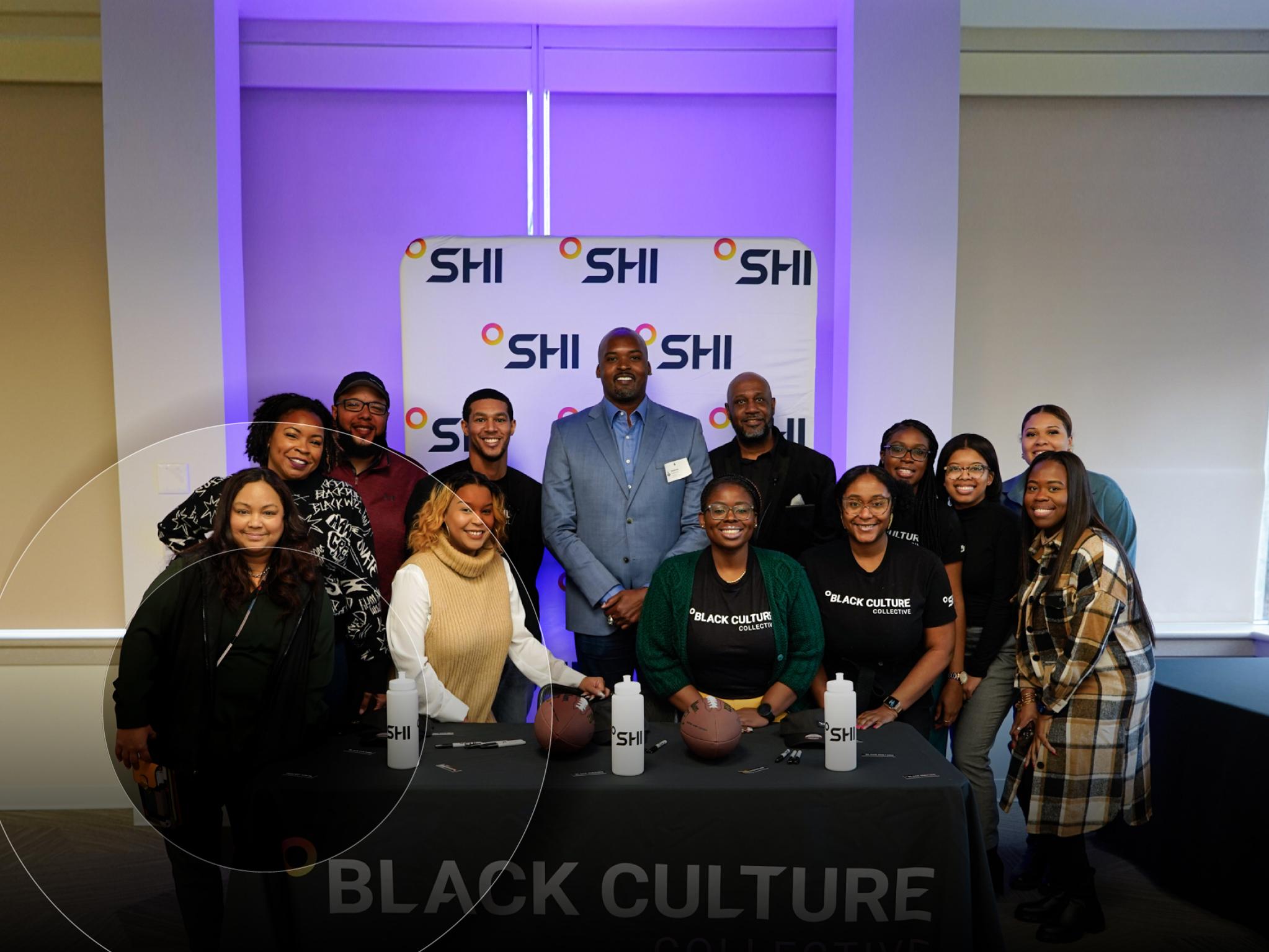Olympic Gold Medalist Matthew Mitcham on how to elevate performance and embrace your true potential:
The first openly gay man to win the gold discusses breaking the surface and paying it forward.

By the time Matthew Mitcham climbed the 10-meter platform at the 2008 Beijing Olympics, the outcome seemed as inevitable as gravity. China had swept the diving events, their team ready to celebrate an eighth and final gold. Mitcham, a 20-year-old Australian, was expected to be a footnote in that day’s diving history.
Instead, he rewrote it.
With a dive that would become the highest-scoring single effort in Olympic history, Mitcham stunned the world: a dizzying two-and-a-half somersault with two-and-a-half twists in the pike position. His final score of 112.10 wasn’t just enough to win — it was enough to stop a host nation’s perfect run in its own pool. And in doing so, Mitcham became the first openly gay man to win Olympic gold.
Seventeen years later, Mitcham joined SHI employees for a Pride Month fireside chat hosted by EMBRACE, our LGBTQIA+ employee resource group. Sponsored by Eaton, the conversation was an exercise in resilience, vulnerability, and the transformative power of inclusion.
All eyes on Mitcham

Mitcham proudly displays his 2008 Beijing Olympics gold medal, inlaid with white jade and the emblem of a dragon.
Mitcham’s retelling of that day in Beijing is disarmingly humble. He didn’t know the math. He just knew he had one dive left.
“I was shell-shocked,” he told SHI employees. “I didn’t realize that I needed an Olympic record to win.”
Weeks before he broke that barrier, Mitcham had made another bold leap: coming out publicly. It was a risky decision, especially in a sport where gay representation was nearly nonexistent and in a host country where cultural acceptance was far from guaranteed.
“I couldn’t imagine going back into the closet,” he said. “I couldn’t think of anything worse.”
However, Mitcham emphasized that visibility is a privilege not everyone can afford. He understands this well after recognizing his identity at a young age. Like many closeted youths, he wrestled with not just self-acceptance but also the prospect of rejection by his community.
“I could tell people to come out,” he said. “But that would be really irresponsible of me because there are real-world, very serious consequences for some people to live openly and authentically. But I try to be visible, so someone else might see that it can be okay.”
In this way, his win wasn’t just a personal victory but a seismic moment for queer athletes around the world.
From burning out to breaking through
Mitcham’s path to the podium wasn’t a straight line. He retired from diving at the ripe old age of 18, disillusioned and emotionally exhausted. Years of training in an environment where he felt he couldn’t be himself had taken its toll.
“I didn’t want to admit that I’d been lying to these people that I’d spent so much time with for so many years. I felt very alienated in that training environment. I wasn’t enjoying the sport all throughout my teenage years. Literally the only thing that kept me in the sport was this need to be the best in the world, so I was doing something that I was hating for years.”
“Something made me feel like I had to overcompensate in some way in order to feel acceptable.”
It wasn’t until a new coach reached out — offering not just a spot on the team, but a safe, inclusive space — that Mitcham found his way back. In just over a year, he went from retired athlete to Olympic champion.
“Having that inclusive environment meant that it was a huge improvement to my self-esteem,” he said. “The motivation was coming from internally rather than externally, which is much more sustainable.”
The ripple effect
Mitcham’s post-Olympic journey has been just as courageous. He’s spoken openly about his struggles with anxiety, depression, and addiction — and about the long road to recovery.
“I had to go to rehab. I couldn’t fix it on my own.”
He learned soon afterward that being of service to others can be one of the best ways to heal. Now more than a decade sober, Mitcham volunteers with LGBTQ+ health organizations and works with global sporting bodies to create safer spaces for queer athletes, especially those from countries where being out is dangerous. He noted the importance of building spaces where athletes can connect without outing themselves, that no one should have to choose between their identity and their sport.
“Allyship isn’t a special occasion.”
Throughout the conversation, Mitcham returned to a central theme: Inclusion is more than a value — it’s a performance driver.
“That inclusive training environment was the catalyst for everything to change afterwards.” It started from the top. “My coach treated me as a human being rather than like a performing robot to get results.” When he felt safe, he trained better. He pushed harder. He was present. He’d unlocked his potential. He praised SHI’s EMBRACE group and Eaton’s sponsorship for creating spaces where employees can thrive, not in spite of who they are but because of it. Studies have shown that by giving minority groups an influential voice, organizations can avoid the consequences of homogenous thinking and even reveal new revenue opportunities.
“Allyship isn’t a special occasion,” he noted. “It’s a lifestyle.”
A legacy beyond medals
When asked what he’s most proud of, Mitcham didn’t hesitate. It wasn’t the record-breaking dive. It wasn’t the gold medal.
“It’s that I got to represent my community.” On the world stage, no less.
As SHI continues to celebrate Pride Month and foster a culture of belonging, Mitcham’s story serves as a reminder: Greatness isn’t just about what you achieve but rather who you become in the process.





